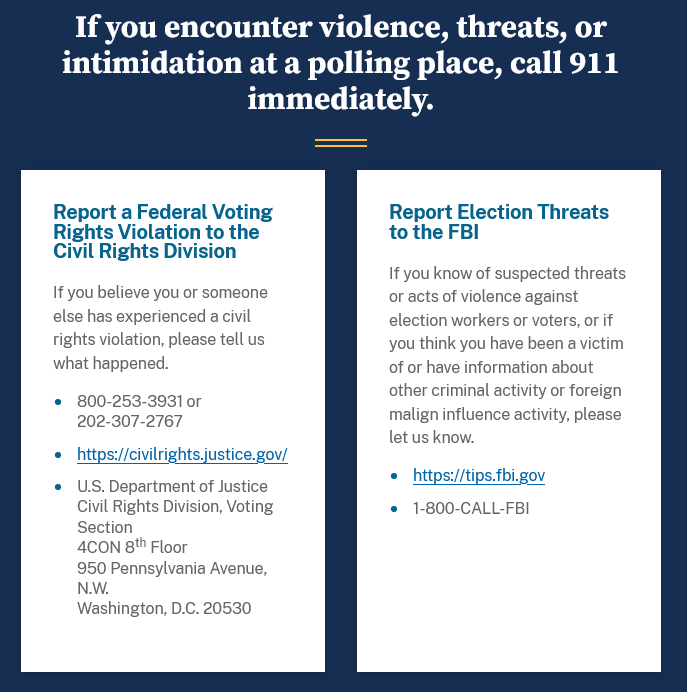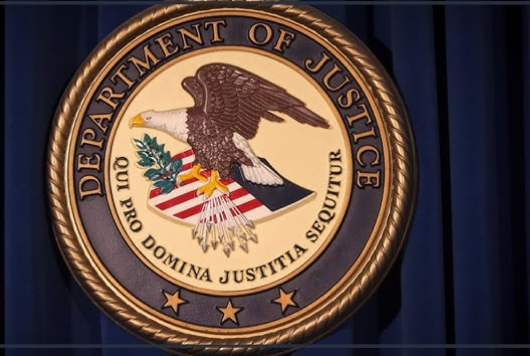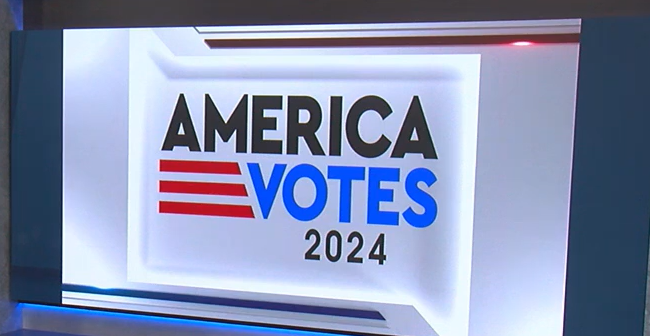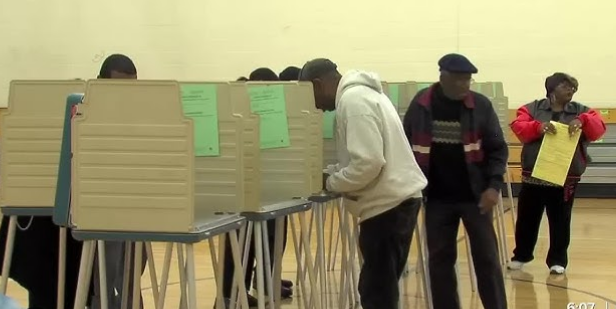By DOJ
Photos: YouTube Screenshots
The Justice Department announced today that it plans to monitor compliance with federal voting rights laws in 86 jurisdictions in 27 states for the Nov. 5 general election.

The Justice Department enforces federal voting rights laws that protect the rights of all eligible citizens to access the ballot. The department regularly deploys its staff to monitor for compliance with federal civil rights laws in elections in communities all across the country.
For the general election, the department will monitor for compliance with federal voting rights laws on Election Day in 86 jurisdictions, including:
- Bethel Census Area, Alaska;
- Dillingham Census Area, Alaska;
- Kusilvak Census Area, Alaska;
- North Slope Borough, Alaska;
- Northwest Arctic Borough, Alaska;
- Apache County, Arizona;
- Maricopa County, Arizona;
- Pima County, Arizona;
- Yuma County, Arizona;
- San Joaquin County, California;
- Broward County, Florida;
- Miami-Dade County, Florida;
- Orange County, Florida;
- Osceola County, Florida;
- Cobb County, Georgia;
- DeKalb County, Georgia;
- Fulton County, Georgia;
- Gwinnett County, Georgia;
- Macon-Bibb County, Georgia;
- Jefferson County, Kentucky;
- Kenton County, Kentucky;
- City of Everett, Massachusetts;
- City of Fitchburg, Massachusetts;
- City of Leominster, Massachusetts;
- City of Lowell, Massachusetts;
- City of Malden, Massachusetts;
- City of Methuen, Massachusetts;
- City of Quincy, Massachusetts;
- City of Salem, Massachusetts;
- Prince George’s County, Maryland;
- City of Ann Arbor, Michigan;
- City of Detroit, Michigan;
- City of Flint, Michigan;
- City of Grand Rapids, Michigan;
- City of Hamtramck, Michigan;
- City of Warren, Michigan;
- Hennepin County, Minnesota;
- City of Minneapolis, Minnesota;
- Ramsey County, Minnesota;
- Covington County, Mississippi;
- Scott County, Mississippi;
- Warren County, Mississippi;
- City of St. Louis, Missouri;
- Blaine County, Montana;
- Alamance County, North Carolina;
- Mecklenburg County, North Carolina;
- Wake County, North Carolina;
- Bergen County, New Jersey;
- Middlesex County, New Jersey;
- Union County, New Jersey;
- Bernalillo County, New Mexico;
- Cibola County, New Mexico;
- Clark County, Nevada;
- Queens, New York;
- Cuyahoga County, Ohio;
- Portage County, Ohio;
- Allegheny County, Pennsylvania;
- Luzerne County, Pennsylvania;
- Philadelphia County, Pennsylvania;
- City of Pawtucket, Rhode Island;
- City of Providence, Rhode Island;
- City of Woonsocket, Rhode Island;
- Charleston County, South Carolina;
- Bennett County, South Dakota;
- Jackson County, South Dakota;
- Minnehaha County, South Dakota;
- Oglala Lakota County, South Dakota;
- Atascosa County, Texas;
- Bexar County, Texas;
- Dallas County, Texas;
- Frio County, Texas;
- Harris County, Texas;
- Hays County, Texas;
- Palo Pinto County, Texas;
- Waller County, Texas;
- San Juan County, Utah;
- Hanover County, Virginia;
- Henrico County, Virginia;
- Loudoun County, Virginia;
- City of Manassas, Virginia;
- City of Manassas Park, Virginia;
- Prince William County, Virginia;
- Town of Lawrence (Rusk County), Wisconsin;
- City of Milwaukee, Wisconsin;
- Town of Thornapple, Wisconsin; and
- City of Wausau, Wisconsin.

The Justice Department’s Civil Rights Division will coordinate the effort. Monitors will include personnel from the Civil Rights Division, other department divisions, U.S. Attorney’s Offices and federal observers from the Office of Personnel Management. Throughout Election Day, division personnel will maintain contact with state and local election officials.
The Civil Rights Division’s Voting Section enforces the civil provisions of federal statutes that protect the right to vote, including the Voting Rights Act, National Voter Registration Act, Help America Vote Act, Uniformed and Overseas Citizens Absentee Voting Act and Civil Rights Acts. The division’s Disability Rights Section enforces the Americans with Disabilities Act (ADA) to ensure that persons with disabilities have a full and equal opportunity to vote. The division’s Criminal Section enforces federal criminal statutes that prohibit voter intimidation and voter suppression based on race, color, national origin or religion.
On Election Day, Civil Rights Division personnel will be available all day to receive questions and complaints from the public related to possible violations of federal voting rights laws. Reports may be made through the department’s website www.civilrights.justice.gov or by calling toll-free at 800-253-3931.
Individuals with questions or complaints related to the ADA may call the department’s toll-free ADA information hotline at 800-514-0301 or 833-610-1264 (TTY) or submit a complaint through a link on the department’s ADA website at www.ada.gov.
Complaints related to any disruptions at a polling place should always be reported to local election officials (including officials based in the polling place). Complaints related to violence, threats of violence or intimidation at a polling place should be reported immediately to local police authorities by calling 911. These complaints should also be reported to the department after local authorities have been contacted.
More information about voting and elections, including guidance documents and other resources, is available at www.justice.gov/voting. Learn more about the Voting Rights Act and other federal voting laws at www.justice.gov/crt/voting-section.







